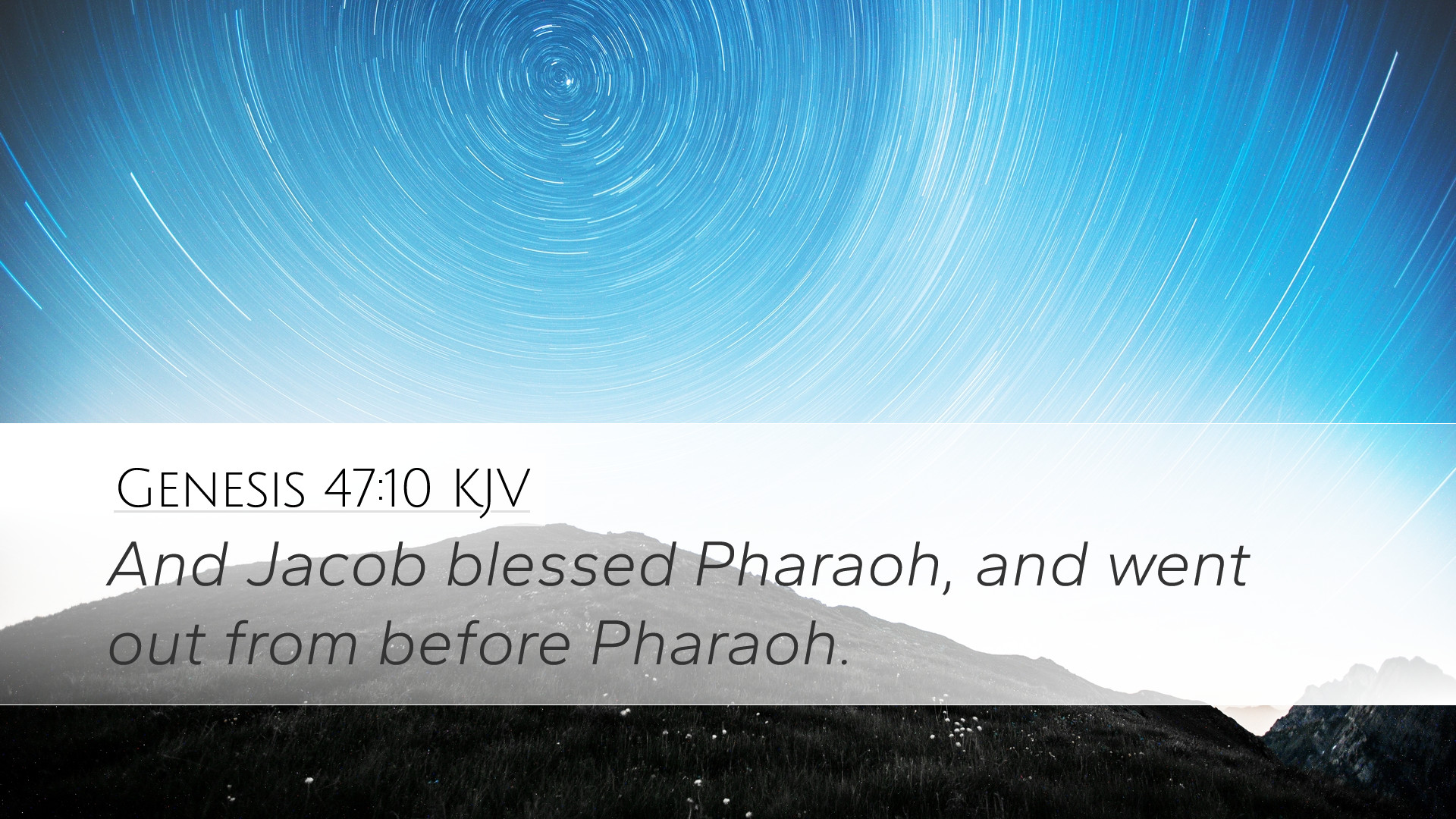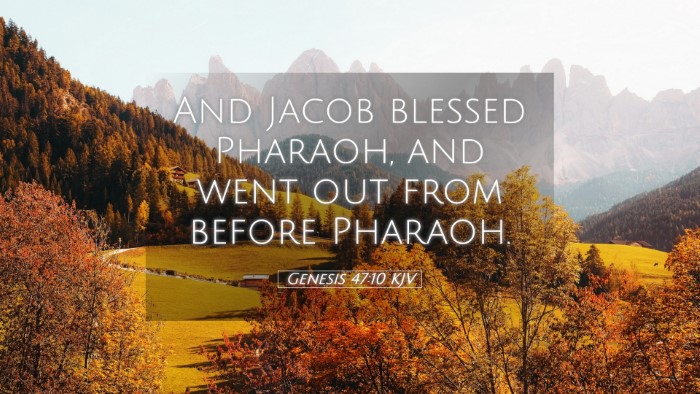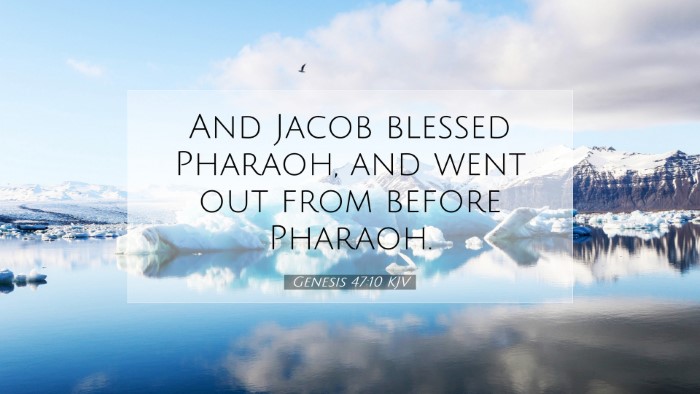Commentary on Genesis 47:10
Bible Verse: Genesis 47:10 - "And Jacob blessed Pharaoh, and went out from before Pharaoh."
Contextual Analysis
The passage occurs during a pivotal moment in the narrative of Joseph’s story, where Jacob, representing the patriarchal lineage, meets Pharaoh as he comes to Egypt to escape the famine in Canaan. This interaction carries significant theological and cultural implications, reflecting the interplay between divine providence and human agency.
Insights from Public Domain Commentaries
Matthew Henry’s Commentary
Matthew Henry highlights the profound humility and honor shown by Jacob in this encounter. Despite being the grandfather of the ruler of Egypt, Jacob willingly humbles himself to bless Pharaoh. This act conveys a deep spiritual truth: the blessing of God’s chosen ones can bring favor upon earthly rulers.
- Jacob’s blessing signifies acknowledgment of God’s sovereignty even over great kings.
- Henry notes that this encounter illustrates the importance of maintaining one's integrity and moral standing, even in the presence of worldly power.
Albert Barnes’ Commentary
Albert Barnes sheds light on the symbolic nature of the blessing that Jacob imparts to Pharaoh. He asserts that this act indicates the superiority of Jacob’s covenant relationship with God over the secular authority Pharaoh represents. The contrast between Jacob, a shepherd and nomad, and Pharaoh, the sovereign ruler, highlights the richness of spiritual heritage versus material power.
- Barnes emphasizes that Jacob’s blessing serves as a reminder of the divine promises that establish the lineage of Israel.
- He also mentions that blessings in the Ancient Near Eastern culture carried significant weight and were often seen as a means of imparting favor and prosperity.
Adam Clarke’s Commentary
Adam Clarke delves into the implications of this blessing from a theological perspective. He points out that Jacob’s act is not just ceremonial; it is an invocation of God’s grace and favor upon Pharaoh and the land of Egypt during a time of crisis.
- Clarke remarks that through Jacob, God is weaving a narrative of redemption that impacts not only Israel but also the surrounding nations.
- Moreover, he understands Jacob’s gesture as a prophetic indication that God's purposes will unfold through Israel’s engagement with the nations, eventually leading to the blessing of all nations through Christ.
Theological Implications
This simple act of blessing carries profound theological implications. It reinforces the idea that God’s promises to Abraham, Isaac, and Jacob extend beyond their immediate descendants to influence the wider world, illustrating the universality of God's plan of salvation.
- The act positions Jacob, as a patriarch, in a prophetic role, thus showcasing the connection between spiritual authority and social dynamics.
- The encounter serves as a prelude to the ongoing tension between Israel and Egypt, setting the stage for future events in Exodus.
Application for Today's Believers
For pastors, students, and theologians, this verse underlines the importance of recognizing God’s sovereignty in worldly affairs. In a culture often dominated by materialism, Jacob’s blessing challenges believers to engage with authority respectfully while embodying their faith principles.
- It serves as a reminder that believers are called to be salt and light, offering blessings and invoking God’s favor upon their communities.
- Jacob's humility reflects a model for Christian leaders who are entrusted with spiritual authority, calling them to bless others rather than seeking personal gain.
Conclusion
Genesis 47:10 beautifully encapsulates the convergence of human relationships and divine providence, illustrating the power of a blessing in a life-transforming encounter. Jacob’s act stands as a testament to faith exercised in humility and the realization of God's overarching narrative throughout history, urging today’s believers to embrace a life of blessing and faithful witness in their contexts.


